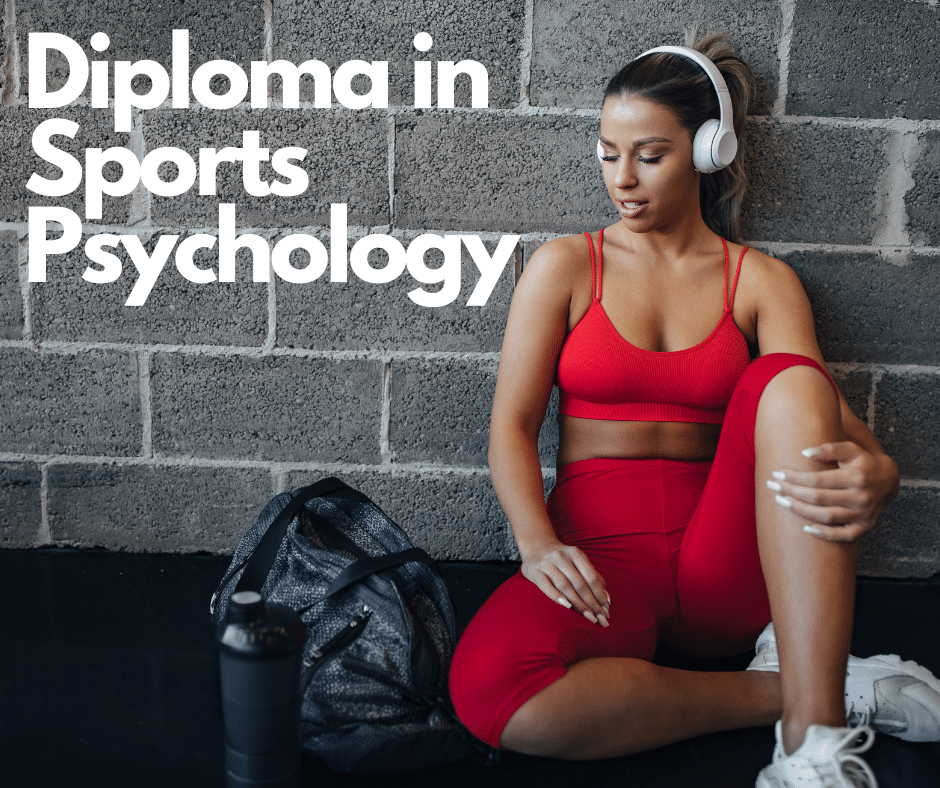Diploma in Sports Psychology
Sport psychology is one of the fastest growing fields within competitive sport. We have only recently begun to realize the importance as well as powerful benefits associated with understanding and mastering the mind. Unquestionably, the mental component of sport is invariably important. The difference between winning and losing often comes down to the mental toughness of the athlete.
Generally speaking, we live in a sport-loving society. Industry analyst Plunkett Research Ltd. estimates that the U.S. sports market generates $400 billion in revenue in a typical year ever from ticket sales for major league games to equipment sold in sporting goods stores.
According to Scott Goldman, PhD, director of clinical and sport psychology at the University of Arizona “Everyone is trying to figure out how to maximize talent” That means finding an edge that goes beyond being in top physical form. “We believe the field really is performance psychology,” says Mark Aoyagi, PhD, director of sport and performance psychology at the University of Denver. “This isn’t specific to sports, even though it developed from sports.”
DIPLOMA IN SPORTS PSYCHOLOGY COURSE OVERVIEW
Salaries for sports psychologists depend on the amount of education and training the professional has, as well as the clientele that psychologist attracts. According to the U.S. Bureau of Labor Statistics (BLS), the average salary for psychologists, all other, including sports psychologists, is $88,400 per year in May 2013.Of course, sports psychologists who work with professional athletes will be among the highest paid.
Our 6-month online course in Sport Psychology will help you gain expertise in this growing field, and provides you with an opportunity to increase knowledge, allowing you to choose a professional career with excellent employment outlook.Whether you are just starting off, a professional, or an instructor, this course is specifically designed to provide a solid foundation in the fastest growing field of Sport Psychology.
LEARNING OBJECTIVES AND COURSE BENEFITS
Students will be able to describe, discuss, apply, and evaluate the major theories of psychology within the context of sport and exercise. With interactive hand-on activities, students will also be able to visualize the concepts in action, enhancing their learning.
This course is a scientific study of the psychological factors associated with participation and performance in sport activities. Emphasis will be placed on how psychological principles, theories, and research can be used to understand and enhance sport performance from a practical view point. Topics will include historical and theoretical perspectives of sport psychology, research methods, and the relationship between sport performance and various personality, motivational, and social psychological variables.
KNOWLEDGE
BY THE END OF THIS COURSE STUDENTS WILL HAVE A BETTER UNDERSTANDING OF HOW AND WHY:
- Origins of Sport Psychology, its development overtime along with various theories. This will enhance your understanding and lay a solid foundation.
- You will have an increased understanding of what motivates athletes, with relevant practical know-how about various techniques as well as theories.
- How to effectively deal with Stressful situations that athletes encounter during the course of their career.
- Be able to know various research methods and various leadership roles in sport psychology, and how to effectively deal with athletes who face burnout situation or face injuries.
SKILLS
By the end of this course students will have developed the ability to:
- Help build a career in Sport Psychology and how to conduct assessment of athletes.
- Understand how to motivate athletes by effectively applying various theories of motivation.
- Understand and apply various techniques in dealing with stressful situations and how to cope with anxiety related matters.
- Understand effective ways to exercise and apply visualization related techniques and how athletes can benefit from them.
- You will have developed the skills to perform counseling among athletes and provide recommendations regarding dangers of drug and steroid use.
- Understand various relaxation and hypnosis concepts and successfully apply in various situations.
ABILITIES
By the end of this course students will have developed a deeper understanding of:
- Psychological theories and research methodologies for the enhancement of performance in sports, e.g., personality, motivation and emotion, physiology, and socio-cultural factors.
- Compare and contrast psychological theories and research related to sport and exercise behavior.
- Explore the various skills involved in developing emotional and mental control: anxiety & arousal, anger management, concentration, imagery, and confidence.
- Integrate effective goal setting practices within their own lives.
- Examine and apply to current trends in sports and fitness: the various pitfalls of eating disorders, substance abuse, and addictive behaviors.
- Identify and explain the practical application of motivational theories with regard to sports, fitness, and exercise.









